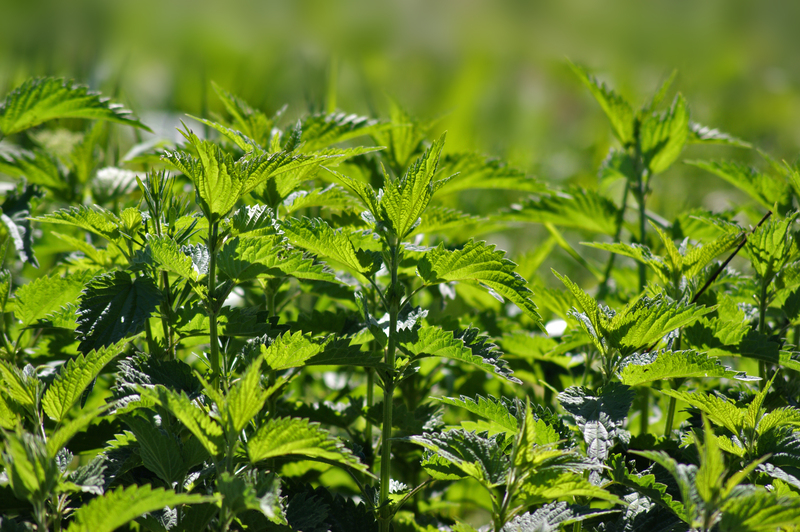Evergreen Climbers for a Brighter, Greener Shady Niche
Posted on 24/05/2025
Evergreen Climbers for a Brighter, Greener Shady Niche
Transforming a shaded corner of your garden into a lush, vibrant oasis can be a challenging yet rewarding endeavor. Evergreen climbers are a perfect solution for adding life and color to otherwise dull, shady spots. These plants not only bring beauty year-round but also offer valuable habitats for local wildlife. In this comprehensive guide, we will explore various types of evergreen vines that flourish in the shade, offering tips for choosing, planting, and maintaining these green treasures.

Why Choose Evergreen Climbers for Shade?
Evergreen climbers are distinguished by their ability to retain lush foliage throughout the year. In shaded areas where many plants struggle, these climbers thrive, providing a tapestry of color and texture to vertical spaces. There are several reasons to choose these green climbers for your shady niche:
- Year-Round Interest: They maintain their foliage during winter months, ensuring your garden remains vibrant.
- Low Maintenance: Many evergreen vines require minimal effort once established, reducing time spent on garden upkeep.
- Versatility: Whether it's a wall, trellis, pergola, or fence, these climbers adapt to various structures.
Choosing the Right Evergreen Climber
Different species of evergreen climbers have unique growth habits, leaf sizes, and environmental requirements. To find the best fit for your garden, consider these factors:
- Light Conditions: Understand the degree of shade your space offers, from partial to full shade, and choose plants accordingly.
- Space Availability: Ensure that the climber has enough room to grow and thrive without overwhelming nearby plants.
- Climate Compatibility: Consider hardiness zones and local climate conditions to ensure longevity.
Top Evergreen Climbers for Shady Spots
Ivy (Hedera spp.)
Among the most versatile of evergreen shade climbers, ivy offers a rich tapestry of green, sometimes with variegated patterns. It is ideal for covering walls and fences as it comes equipped with aerial rootlets to support its climbing habit. Varieties such as English Ivy (Hedera helix) and Algerian Ivy (Hedera canariensis) work well in shaded conditions, requiring minimal care once rooted.
Climbing Hydrangea (Hydrangea anomala subsp. petiolaris)
A unique and elegant addition, the Climbing Hydrangea exhibits lush white flowers during summer months, adding brightness to shaded areas. This climber prefers moist, well-drained soil and appreciates some dappled sunlight. It clings to surfaces via aerial roots and is perfect for walls or large tree trunks.
Winter Jasmine (Jasminum nudiflorum)
Despite its name, Winter Jasmine is a semi-evergreen that retains its leaves in mild climates. Known for its bright yellow flowers that bloom in winter, this plant is resilient and adds a splash of color to shaded areas. It can be trained along trellises or left to sprawl naturally on banks.
Evergreen Clematis (Clematis armandii)
Perfect for providing texture and fragrance, the Evergreen Clematis offers large, glossy leaves and an abundance of white, scented flowers in early spring. This climber prefers a cool, shaded root environment with adequate sunlight for foliage and flowers, making it ideal for a north-facing wall.

Planting Tips for Success
Establishing evergreen climbers in shaded regions requires attention to soil, positioning, and initial support. Here are some tips to get you started:
- Improving Soil Quality: Enrich the soil with organic matter such as compost to boost fertility and improve drainage.
- Proper Spacing: Provide sufficient space between plants to prevent overcrowding, acknowledging their mature width.
- Supporting Structures: Ensure that trellises or other structures are sturdy enough to support mature climbers.
Maintenance and Care
While evergreen climbers for shade are generally low-maintenance, they benefit from regular care to ensure they remain healthy and vibrant:
- Pruning: Regular pruning encourages healthy growth and prevents overgrowth. Remove dead or diseased foliage promptly.
- Feeding: An annual application of a balanced fertilizer in spring enhances growth and foliage health.
- Watering: Ensure adequate watering, especially during dry spells, while avoiding waterlogging.
Conclusion
Evergreen climbing plants bring an enchanting dimension to shady garden spaces, filled with color, texture, and allurement throughout the year. By selecting the appropriate species and providing the right conditions, you can transform even the gloomiest of niches into a thriving green haven. With these beautiful, resilient climbers, a beam of green hope can enhance the aesthetics and ecological value of your garden, making every corner an inviting sanctuary.
Latest Posts
From Waste Pile to Garden Delight: Soil Enrichment Unleashed
Mastering the Art of Weatherproofing Your Garden Space
Container Gardening: Cultivating Creativity

